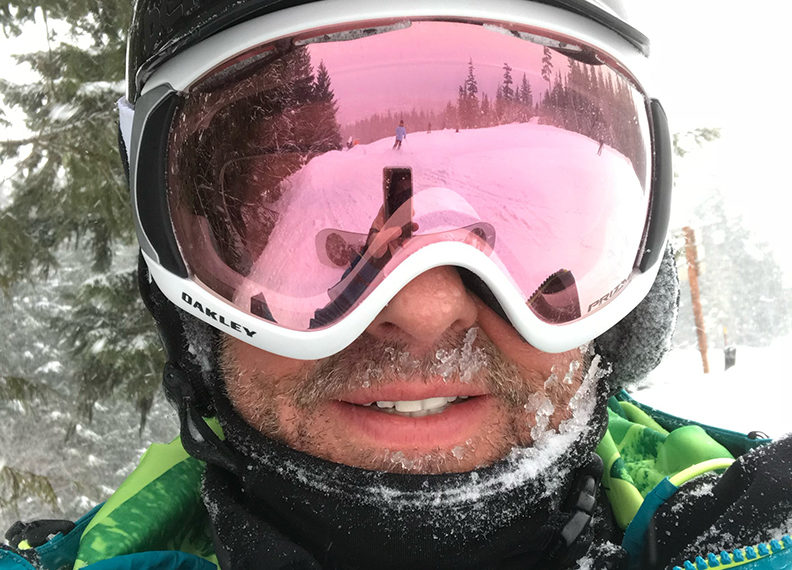
Bloodworks Northwest’s new President & CEO is Curt Bailey, a former Marine chopper pilot who takes a snowboarder’s approach to leadership in the competitive Seattle health care industry. In 75 years as a Pacific Northwest institution, Bloodworks has always been led by a President & CEO with an M.D. behind his or her name. Curt Bailey comes with an MBA, a background that serves him well.
Listen below or read on for a full transcript.
Our new President & CEO, Curt Bailey, is a former Marine chopper pilot who takes a snowboarder’s approach to leadership. Hear about his plans for Bloodworks Northwest in our February bonus episode: https://t.co/dVqyHpHVH0. #boldforblood pic.twitter.com/vcMDspSfZ3
— Bloodworks Northwest 🩸 (@BloodworksNW) February 11, 2020
Curt: Historically, we’ve been very polite and we’ve said, “Please, would you consider donating blood?” As if they’re doing us a favor. And that’s not helpful in the middle of a pandemic. So, we’re not going to ask anymore. We’re going to tell the community what the community needs.
John: Hi, I’m John Yeager, and this is a special edition of “Bloodworks 101,” a podcast brought to you by Bloodworks Northwest, the major supplier of blood and blood products in the Pacific Northwest. We’ve all been impacted by COVID-19 whether at the grocery store in search of the last roll of paper towels or over the sink washing your hands for the 10th time today. We’re all finding our way through what experts tell us is just the beginning phase of life with the coronavirus. These times have demanded a different message from Bloodworks Northwest, and they’ve demanded straight talk about the blood supply from our president and CEO, Curt Bailey, straight talk that has resulted in our donors stepping up and giving big. However…
Curt: We don’t know what’s going to happen from one day to the next. But we have enough blood on the shelf right now that our community is safe today. And then the opportunity is to use this as a way to galvanize the community, both individuals in the community, each person, but also institutions in the community to recommit if you will to habitual donation as almost a civic duty in the Pacific Northwest. I think we’re going to learn how to engage donor groups a little bit differently now to include almost like virtual blood drives, where members of a group like say, Microsoft, they’re not on campus anymore, but we’re going to find a way to make them do or have them do a virtual blood drive at our donor centers. So, just lots of ways in which we’re evolving, how we connect with donors, how we message the community in order to meet the crisis, but also position us for a better future afterwards.
John: It feels like there’s a big change in messaging right now. You said before, well, this is a big shift for us.
Curt: Well, historically, we’ve been very polite and we’ve said, “Please, would you consider donating blood?” You know, very almost retiring or reserved as if they’re doing us a favor. And that’s not helpful in the middle of a pandemic. So, we’re not going to ask anymore. We’re going to tell the community what the community needs because the community expects us to lead in this regard. We are the blood center for the coastal regions of the Pacific Northwest and so, it falls to us to be clear with the community, what the community needs. And so, we’re going to tell them to become habitual donors, each individual. And we’re going to tell institutions to make blood donation a part of their emergency preparedness plan and in the current setting, of course, to implement that plan and to have a person assigned as the point person for that institution for blood donation. And this is not unprecedented. In true crisis, this has been done before and in a sense, it’s the birth of the King County Blood Center, which ultimately became Bloodworks, born in crisis. Well, we’re rebirthing this.
John: But this is Seattle. We’re very polite, a polite place to live. We’d rather be passively aggressive than get into your face. And maybe that’s about to change.
Curt: What we’ve found is that when we are very, very direct over the last few days about what’s necessary, the community receives that very positively and they’re grateful for the clarity and it isn’t to say we’re being disrespectful, not at all. We’re just telling the community what we as the experts in community believe is necessary to ensure the community safety. And that’s our obligation. You know, it’s sort of the fire department, doesn’t say, you know, “Please have smoke detectors. Please, please have smoke detectors.” They say, “Install smoke detectors.” And it’s because it’s for everybody’s safety and we’re going to be similar. I imagine the community is also grateful for leadership generally. It’s a time of enormous ambiguity and the more clear we can be in our message and the more of a leadership role we can play in everyone’s life, or at least in the part of their life that relates to blood, I think they’ll appreciate it. Now is not a time to be wishy-washy.
John: Curt Bailey says now is the time to look for ways to help your neighbor through a time of great uncertainty. Experts tell us it’ll most likely get personal and most likely it’ll get worse before it gets better. It’s easy to feel helpless at a time like this, what do you do? Well, you stand up and make a difference by donating blood. It’s a tangible way to say you care. So, do it. Make your appointment today, go to bloodworksnw.org or text the word “Blood app” to 91985. I’m John Yeager for “Bloodworks 101.” See you next time.
Subscribe to Bloodworks 101 wherever you listen to your favorite podcasts and join our Podcast Insiders group on Facebook.
Tell Us What You Think!